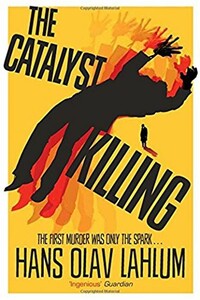Satellite People | страница 100
‘I must say that I am not entirely sure how I can be of use with regards to your ongoing murder investigation. But I will of course do everything I can to help you,’ he said after a couple of moments, in his characteristic dialect.
I took the hint that the foreign minister’s time was limited and promptly launched into a hastily improvised list of questions.
In answer to my first question about the treason trials after the war, the foreign minister apologized that he unfortunately knew nothing about them. He had spent the final years of the war in Sweden. He denied any knowledge of operations carried out by Resistance groups in Oslo during that time, and he had only heard about the ‘tragedy on Liberation Day’ after the event. From what he had read, there was something very odd about the circumstances surrounding Ole Kristian Wiig’s death. But legally the case appeared to be cut and dried and had quickly been overshadowed by the trials against leading Nazis.
Lykke sat lost in thought fora few moments after he had mentioned this, but then quickly returned to the present. He concluded in a grave voice that he unfortunately could not be of much help to me with regard to the war either. He had met both Magdalon Schelderup and Petter Johannes Wendelboe several times later, but did not know either of them particularly well and had never discussed with them what went on in the war. At the time, Schelderup had been more interested in the Cold War and contingency plans for a possible Soviet invasion. Even after fifty, he seemed to be a man who preferred to guard against possible future scenarios rather than dwell on the past.
Jonas Lykke became obviously more animated and informative when the subject turned to the Conservative parliamentary group after the war. In fact, I thought to myself that he was remarkably informal given that he was still a senior politician. He remarked with a quiet, dry chuckle that Magdalon Schelderup had come across as ‘unusually intelligent, unusually clear-sighted, unusually conservative and unusually cynical, even for a Conservative member of parliament for Akershus or Oslo!’
I ventured to ask why, then, Schelderup’s career in national politics had been so short-lived. Lykke answered with another gentle smile that that problem had in fact been Magdalon Schelderup’s clear-sightedness. He quite obviously preferred to be in a position of power and was realistic enough to admit that it would be many years before the Conservatives would ever form a government. When he stood down in 1953 he was fifty-four years old and had decided to concentrate on his extremely successful business empire.



